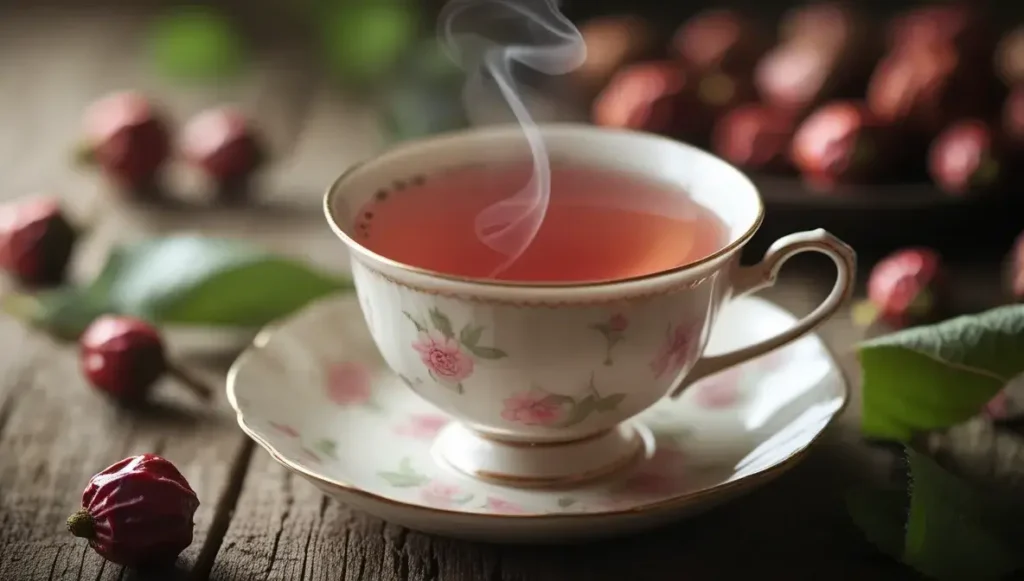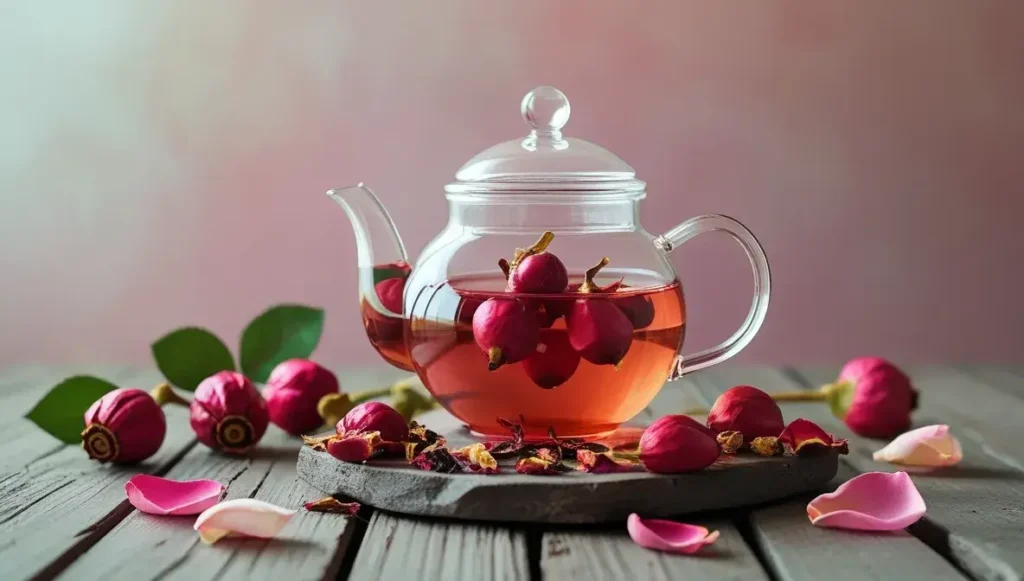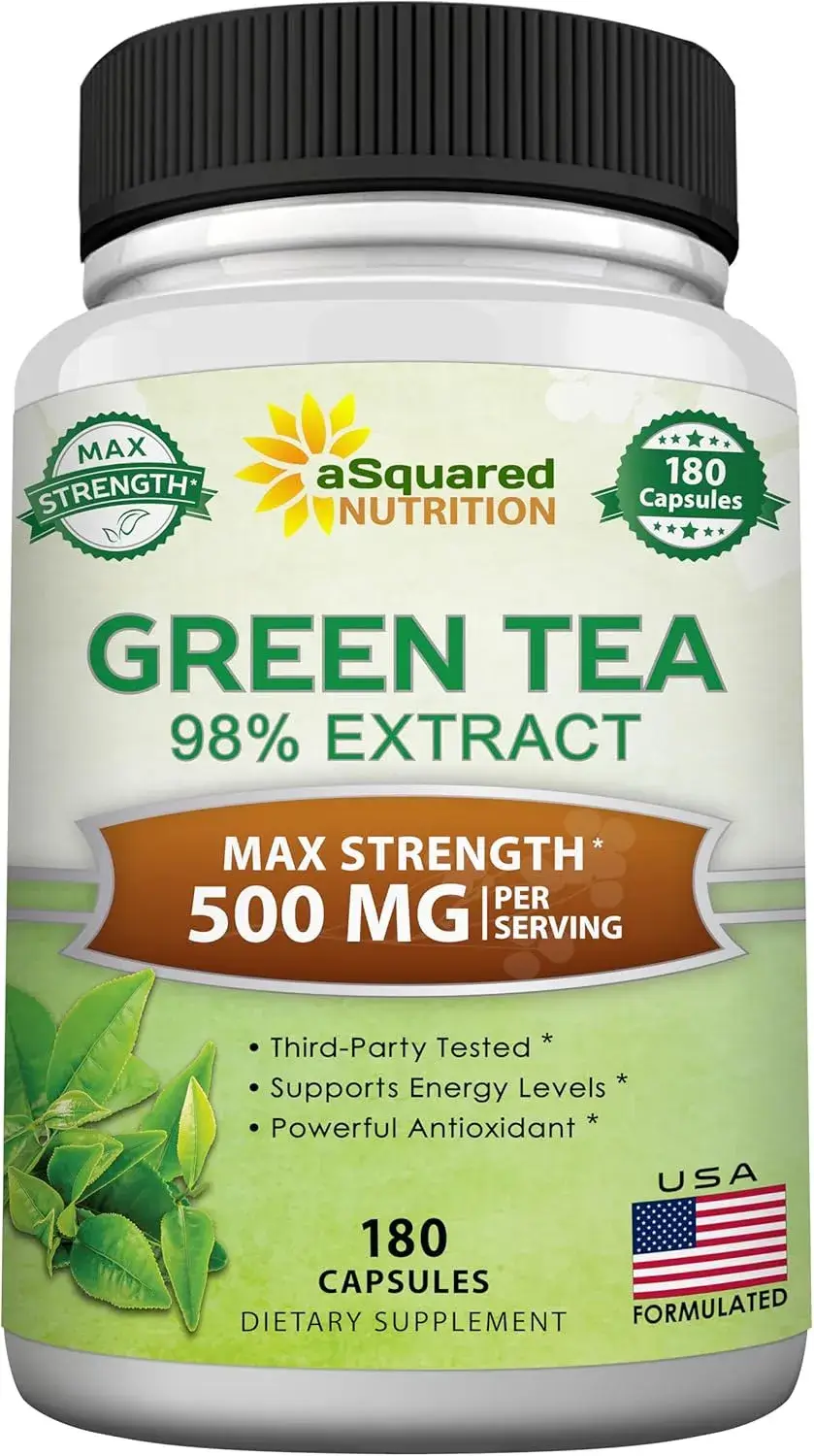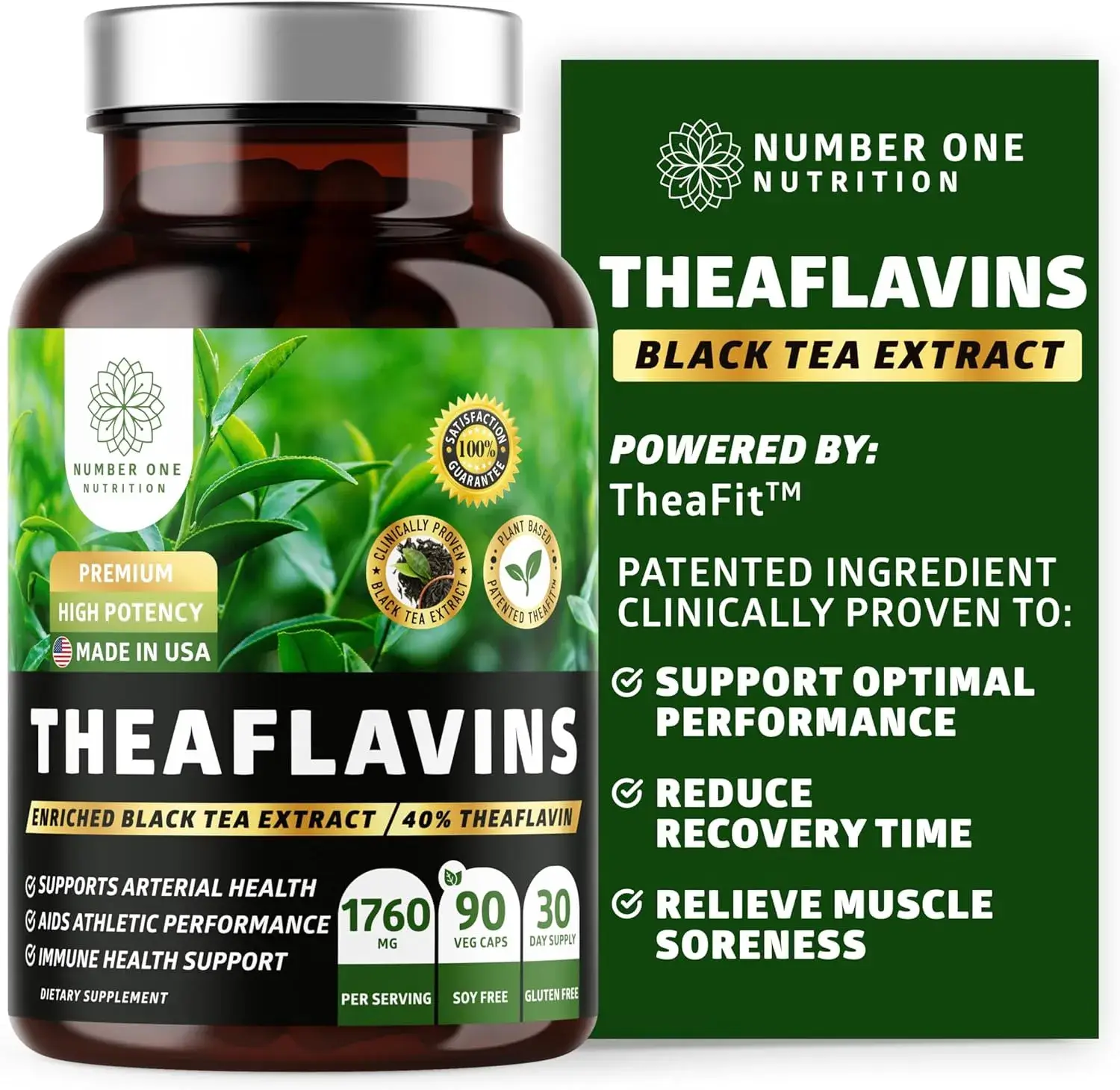Table of Contents
So, you’re curious about sipping on some rosehip tea on empty stomach first thing in the morning? It’s a pretty common question, and honestly, it’s smart to wonder what happens when you introduce something new to your system like that. Rosehip tea, made from the fruit of the rose plant, has a unique tangy flavor and is known for its vitamin C and antioxidant content. People drink it for all sorts of reasons, from boosting their immune system to just enjoying a warm, flavorful beverage. But what happens specifically when you drink rosehip tea on an empty stomach? Let’s break it down.
Key Takeaways
- Rosehip tea is made from the fruit of rose plants and has a tangy, slightly floral taste.
- It’s packed with antioxidants and vitamin C, which can support your immune system and skin.
- Some research suggests rose hips might help with joint pain due to their anti-inflammatory properties.
- While studies show benefits for rosehip extract, more research is needed to confirm these effects specifically for rosehip tea, especially regarding blood sugar and weight loss.
- It’s generally safe for most adults, but pregnant or breastfeeding individuals, and those on certain medications or with kidney stone risks, should consult a doctor first.
Understanding Rosehip Tea on an Empty Stomach

So, you’re curious about sipping rosehip tea first thing in the morning, before you’ve eaten anything. It’s a pretty common question, and honestly, it makes sense to wonder about the effects of any new drink on an empty stomach. Is rosehip tea good on an empty stomach? Well, let’s break it down.
What Constitutes Rosehip Tea?
First off, what exactly is rosehip tea? It’s not made from the flower petals, but rather from the fruit that’s left behind after the rose has bloomed and its petals have fallen off. These little fruits, often called “hips,” are typically bright red or orange. They’ve been used for ages in traditional remedies, and people have historically turned to them for all sorts of things. Think of them as nature’s little powerhouses, packed with good stuff.
The Tangy Taste of Rosehip Infusion
When you brew up a cup of rosehip tea, you’ll notice it has a pretty distinct flavor. It’s not like your typical black tea or even green tea. Most people describe it as tangy, with a bit of a tart kick, almost like cranberries or a tart apple. Some folks even detect a subtle floral note in there. It’s definitely a unique taste, and it’s one of the things that makes rosehip tea stand out. It’s naturally caffeine-free, which is a bonus for many people looking for a calming morning routine rosehip tea.
Historical Use of Rosehips
People haven’t just recently discovered rosehips. They have a long history of use, especially in traditional medicine. For centuries, different cultures have utilized rosehips for various purposes. During times when fresh fruits were hard to come by, like during wartime, the high vitamin C content in rosehips was particularly valued for keeping people healthy. Native American traditions, for instance, sometimes used rosehip tea to help with things like indigestion. It’s a plant with a past, that’s for sure.
Potential Benefits of Rosehip Tea
When you think about starting your day with a warm drink, coffee or black tea often come to mind. But have you considered rosehip tea? It’s a fantastic option, especially if you’re looking for the benefits of rosehip tea in the morning without the caffeine jolt. The benefits of rosehip tea morning consumption are quite interesting.
Antioxidant Powerhouse
Rosehips are packed with compounds that help your body fight off damage from unstable molecules called free radicals. Think of it like a shield for your cells. These antioxidants, including vitamin C, polyphenols, and carotenoids, are what give rosehip tea its vibrant color and its potential health perks. The amount can change depending on the type of rose plant and where it grew, but generally, they’re a really good source. Some studies even show that rose hips have a higher antioxidant capacity compared to other fruits.
Supporting Joint Health
If you deal with achy joints, rosehip tea might offer some relief. It contains natural compounds that have anti-inflammatory properties. While more research is always good, the idea is that these compounds can help calm down inflammation that might be causing discomfort. So, sipping on this tea could be a gentle way to support your joint comfort, especially as part of a morning routine.
Immune System Boost
One of the most talked-about aspects of rosehips is their high vitamin C content. Vitamin C is well-known for its role in keeping your immune system strong. Having a cup of rosehip tea, particularly in the morning, can contribute to your daily vitamin C intake, giving your body a little extra support to stay healthy. It’s a simple, tasty way to help your body’s natural defenses.
👉 Sip the Best rosehip tea today feel energized instantly 👈
Rosehip Tea and Digestive Wellness

When you think about drinking something on an empty stomach, you might consider what’s gentle and supportive for your system. Rosehip tea, with its unique tangy flavor, can be a surprisingly good choice for your morning routine, especially if you’re looking for something to help settle your stomach. It’s not just about hydration; this herbal infusion has a history of being used for digestive wellness.
Soothing the Stomach
Many people find that drinking rosehip tea for stomach health can be quite comforting. The natural compounds present in rosehips are thought to have a calming effect on the digestive tract. If you’re experiencing mild discomfort or just want to start your day with something gentle, rosehip tea digestion empty stomach might be what you’re looking for. It’s a caffeine-free option, which is often preferred when your stomach is empty, as caffeine can sometimes cause jitters or upset.
Promoting Healthy Digestion
Beyond just soothing, rosehip tea can also play a role in promoting overall healthy digestion. The gentle nature of the tea, combined with its unique composition, may help support the natural processes of your digestive system. For those specifically seeking rosehip tea for digestion morning, it offers a way to gently kickstart your day. It’s a simple addition that could contribute to a more comfortable digestive experience throughout the day.
Hydration and Detoxification
Starting your day with any fluid helps with hydration, and rosehip tea is no exception. Being caffeine-free, it contributes to your daily fluid intake without the diuretic effects of caffeinated beverages. This can be particularly beneficial when your body is rehydrating after a night’s sleep. While not a magic detox drink, staying hydrated is a key part of your body’s natural detoxification processes, and rosehip tea can be a pleasant part of that routine. It’s a simple, flavorful way to support your body’s functions right from the start of your day.
Brewing the Perfect Cup of Rosehip Tea

Brewing a great cup of rosehip tea is pretty straightforward, and honestly, it’s a nice little ritual to get into. You can use either fresh or dried rosehips, and each has its own way of getting ready.
Preparing Dried Rosehips
If you’re using dried rosehips, you’ll typically want about one to two teaspoons for every cup of water. You can put them directly into your teapot or a tea infuser. If you don’t have an infuser, a simple mesh strainer works just fine when you pour the tea.
Steeping for Optimal Flavor
Once you’ve got your rosehips ready, pour hot, but not boiling, water over them. Letting the water cool for just a minute after it boils is a good idea. Then, let it steep for about 5 to 7 minutes. If you like a stronger flavor, you can let it go a bit longer, maybe up to 10 minutes. The steeping time really makes a difference in how much flavor you get out of the hips.
Enhancing the Taste
Rosehip tea has a naturally tangy, almost cranberry-like taste. Some people find it a bit too tart on its own. If that’s you, don’t worry! A little bit of honey or maple syrup can really balance out that tanginess and make it more pleasant. You can also try adding a slice of lemon or a bit of ginger for an extra kick. It’s also quite refreshing served over ice on a warm day.
👉 Grab our Award winning rosehip tea bundle limited time deal 👈
Considerations Before Drinking Rosehip Tea

While drinking rosehip tea first thing in the morning on an empty stomach might seem like a healthy habit, it’s wise to pause and consider a few things first. It’s not quite as straightforward as just brewing a cup and gulping it down.
Pregnancy and Breastfeeding Precautions
If you’re expecting or nursing, you’ll want to be extra cautious. There isn’t a lot of solid research on how rosehip tea affects pregnant or breastfeeding individuals. Because of this, it’s really best to chat with your doctor or a healthcare provider before you start incorporating it into your routine. They can give you advice tailored to your specific situation.
Potential Interactions with Medications
Rosehip tea can sometimes interact with certain medications. For instance, if you’re taking lithium, a medication for mood disorders, the diuretic effect of rosehip tea could potentially increase the concentration of lithium in your body. This could lead to some serious side effects. It’s always a good idea to review any medications you’re currently taking with your doctor or pharmacist to see if rosehip tea might interfere.
Kidney Stone Risk Factors
Rosehips are naturally high in Vitamin C. While Vitamin C is great for your immune system, consuming very large amounts, especially if you’re prone to them, could potentially increase your risk of developing kidney stones. If you have a history of kidney stones, it’s worth discussing this with your healthcare provider before making rosehip tea a regular part of your diet, particularly when drinking rosehip tea before breakfast.
It’s important to remember that while rosehip tea offers potential benefits, it’s not a magic bullet. Listening to your body and consulting with a healthcare professional are key steps to ensure it fits safely into your wellness plan. Thinking about when is best time to drink rosehip tea might involve considering these factors first, rather than just focusing on drinking rosehip tea first thing.
When considering the best time to drink rosehip tea, it’s not just about an empty stomach. Factors like medication timing and personal health history play a significant role. While many enjoy it as a morning beverage, understanding these potential considerations helps you make an informed choice about incorporating it into your day.
Exploring Rosehip Tea’s Impact on Blood Sugar

So, let’s talk about blood sugar. It’s a pretty big deal for overall health, and many people are curious if drinking rosehip tea can help manage it. The research here is still developing, and it’s important to look at what we know so far.
Animal Studies on Blood Sugar Levels
Some early research, mostly done on animals like mice and rats, has shown some interesting results. In these studies, when animals were given rosehip extract, their blood sugar levels seemed to go down. There was even a study where rosehip powder helped reduce fat cell growth in the liver, which is a risk factor for type 2 diabetes. It’s like the rosehip was helping the body handle sugar better.
Human Study Limitations
Now, here’s where it gets a bit tricky. While those animal studies are promising, they don’t always translate directly to humans. There was a study with people who were overweight, and they took rosehip powder every day. Guess what? It didn’t really change their blood sugar levels or how their bodies used insulin. This means we can’t just assume what works in mice will work the same way for us.
Rosehip Extract vs. Rosehip Tea
It’s also really important to remember that most of the studies showing an effect on blood sugar used concentrated rosehip extract or powder. Rosehip tea, while made from the same plant, is a much less concentrated form. Think of it like comparing a strong espresso shot to a weak coffee – they come from the same bean, but the effect is different. So, even if extracts show promise, we don’t have enough solid evidence yet to say the same about drinking rosehip tea specifically for blood sugar control. More research is definitely needed here.
👉 Experience powerful rosehip tea benefits buy the premium blend 👈
Rosehip Tea and Cardiovascular Health

When you’re thinking about drinking rosehip tea before breakfast, it’s natural to wonder about its effects on your heart. The good news is that this tangy brew might offer some support for your cardiovascular system.
Antioxidants and Heart Protection
Rosehips are packed with antioxidants, like vitamin C and flavonoids. These compounds are thought to help protect your body’s cells from damage, which is a good thing for your heart. Think of them as little helpers keeping things running smoothly.
Impact on Blood Pressure
Some research suggests that the antioxidants found in rosehips could potentially help with blood pressure levels. Studies, including one with adults who had higher blood pressure, showed some positive changes. While these studies often use concentrated extracts, the presence of these beneficial compounds in the tea is promising.
Cholesterol Level Considerations
Similar to blood pressure, there’s some indication that rosehip might have a positive effect on cholesterol. A study involving adults with obesity found improvements in certain cholesterol markers after consuming rosehip powder. However, it’s important to remember that the powder has fiber, which tea doesn’t, so the effects might differ. More research specifically on rosehip tea before breakfast effects is needed here.
While the exact mechanisms are still being explored, the natural compounds in rosehip tea appear to contribute to heart health through their antioxidant and anti-inflammatory properties. It’s a gentle way to potentially support your cardiovascular system.
It’s worth noting that most of the studies showing significant results use concentrated rosehip extracts, not just the tea. So, while drinking rosehip tea is a pleasant way to get some of these benefits, it’s not quite the same as taking a supplement. Still, as part of a healthy routine, it’s a nice addition.
So, Should You Drink Rosehip Tea on Empty Stomach?
Ultimately, sipping rosehip tea, whether on an empty stomach or not, can be a pleasant way to add a bit of flavor and some potential health perks to your day. It’s naturally caffeine-free, which is a nice bonus, and it’s packed with good stuff like antioxidants. While the idea of drinking it first thing in the morning is appealing for some, there isn’t strong evidence to suggest it’s significantly better than drinking it at other times. Remember to chat with your doctor if you’re pregnant, nursing, or have any health concerns, especially if you’re on medication. For most people, though, it’s a simple, tasty drink that can be enjoyed anytime.
👉 Taste superior rosehip tea now exclusive savings end soon 👈
Frequently Asked Questions
What exactly is rosehip tea?
Rosehip tea is made from the part of the rose plant that grows after the flower petals fall off. These are the fruits, often called ‘hips’. They are usually bright red or orange and are used to make the tea.
What does rosehip tea taste like?
Rosehip tea has a tangy, slightly sour taste, kind of like cranberries or green apples. It also has a hint of floral flavor. Some people add honey to make it sweeter.
Does rosehip tea have caffeine?
Rosehip tea is naturally caffeine-free, so it’s a good choice if you want to relax or avoid caffeine, especially in the evening.
Can rosehip tea help my immune system?
Yes, rosehip tea is packed with vitamin C and other antioxidants. These can help support your body’s defense system and protect your cells from damage.
Can rosehip tea help with joint pain?
While studies show rosehip might help with joint pain because it has anti-inflammatory properties, more research is needed to know for sure how well rosehip tea works for this.
Are there any reasons I shouldn’t drink rosehip tea?
It’s best to talk to your doctor before drinking rosehip tea if you are pregnant or breastfeeding. Also, if you have a history of kidney stones or are taking certain medications like lithium, it’s important to get medical advice first.













